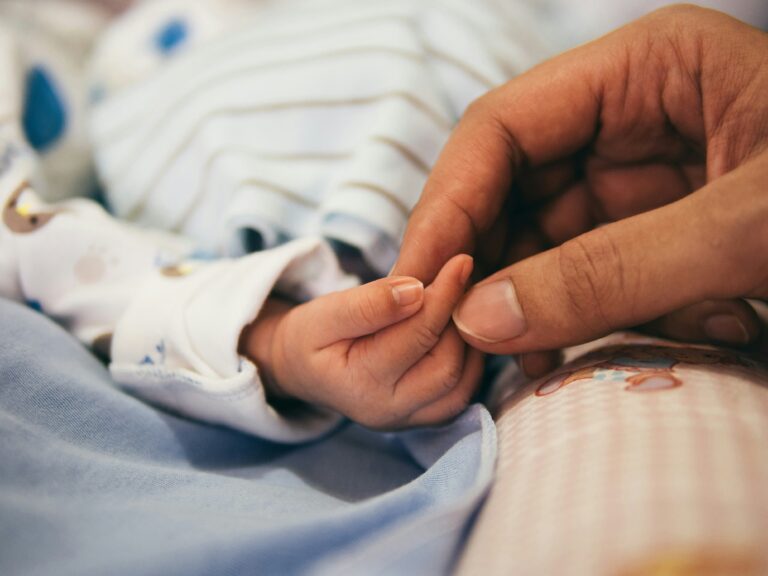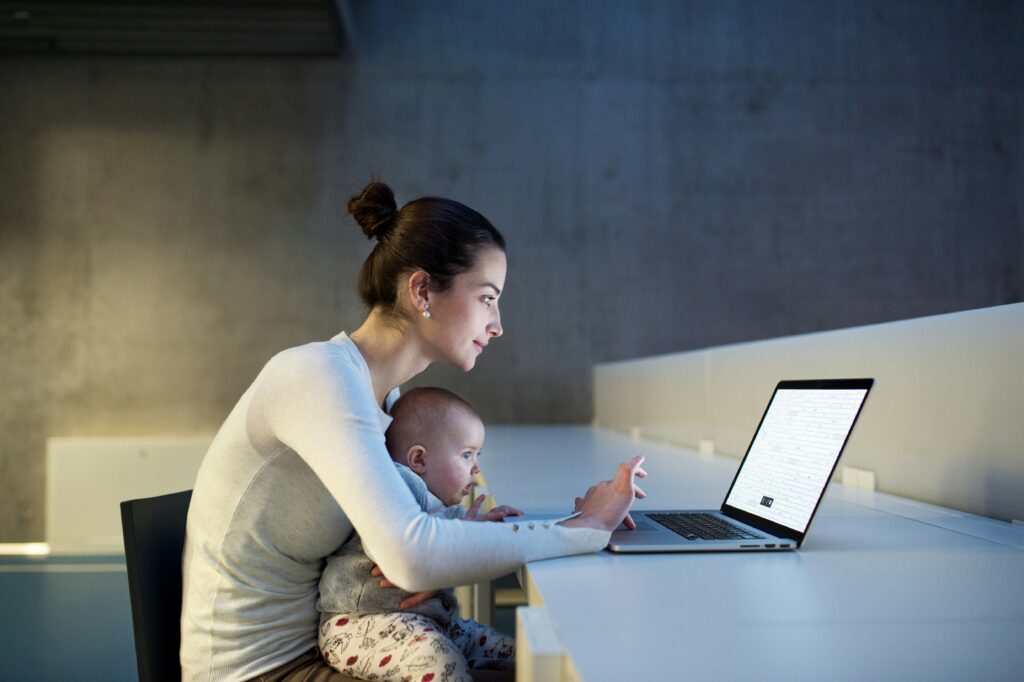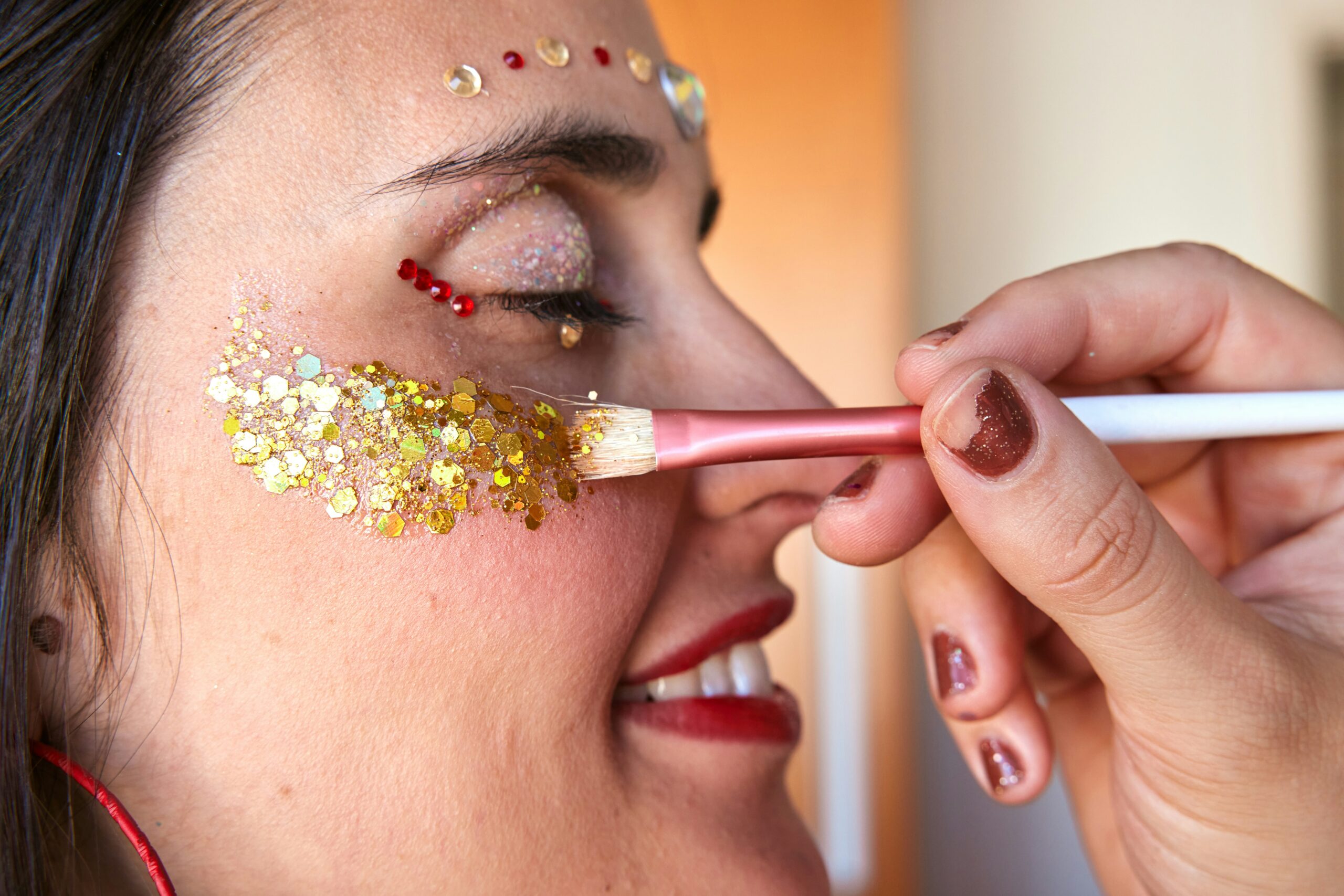Motherhood always felt like my destiny. It felt like an innate calling, similar to my profound desire to become a teacher. I always imagined dedicating my life to other people’s children in the classroom and then to my own kids at home, when the time came.
I always just assumed that I’d feel as fulfilled by being at home with my own children as I felt being in a classroom with other people’s kids. I never imagined the deep need I’d have to get back to work, nor was I prepared for the guilt I’d feel from the very beginning of motherhood.
Let’s back up: I began my career as a teacher in a low-income community in the South Bronx. From there I went on to teach at a progressive private school in Newark, New Jersey and after seven years in the classroom, I went back to graduate school in a program called Mind, Brain, and Education at Harvard.
I wanted to empower myself and my students with an understanding of how our brains and emotions impact our ability to learn. I became fascinated with the notion that connecting with families and children earlier in life could have a greater impact on a positive academic trajectory, so when I finished graduate school I went on to teach early childhood at a Head Start for children from low-income, under-resourced communities.
I had always wanted to teach adolescents, but I found a deep love for the curiosity and wonder of toddler minds—and likewise I loved working so closely with the parents and families of these children.
Still, when I became pregnant, I knew that my hour-long subway commute was not what I wanted with a baby at home. I didn’t want to give all my emotional and physical energy to other people’s children when mine was at home. I wanted to throw myself into being a mom. To be present and to see how it felt to stay home. And, I was lucky enough to have the opportunity to do so when my son arrived and made me a mom.
On August 2, 2015, our son Theo was born, and our entire world changed. Twenty four hours after my labor was induced, he came into the world a bright-eyed wonder. Two days later when we brought him home, my husband Dan and I set the bar low to avoid being entirely overwhelmed by the magnitude of our very own child: our only task for the night was to keep him alive. At 2 a.m. that night, Dan was concerned with the gagging noises he was making and only moments later, he began vomiting green bile.
We raced two long blocks by foot to the nearest emergency room, Dan carrying the car seat in hand since we hadn’t even figured out how to use the stroller attachment yet, and I hobbled behind, episiotomy stitches throbbing between my legs. We were whisked through triage and taken immediately to x-rays, discussions of spinal taps, tubes inserted through our two-day old baby’s nose and wires attached everywhere.
We were overloaded with worst-case scenarios and feared fatal news. I could barely stand from physical weakness and emotional devastation as I sang, voice trembling, “You are my sunshine, my only sunshine,” wondering if I was ever going to get the chance to love this tiny human the way I had always dreamed.
We spent the next four days in the pediatric intensive care unit (PICU) ruling out the life-threatening explanations and waiting out the illness. Bacteria never grew on the petri dishes, and finding a conclusive cause could have been even more invasive, if not impossible, to root out. We deemed it unnecessary. The antibiotics worked and our baby was okay. When we finally got to return home, we were thoroughly shaken and obviously exhausted.
The next few months didn’t play out as I had always envisioned. Certainly we were in awe of our baby—and I’m quite sure we loved him. But neither of us was smitten. Not for a while.
Leaving my teaching job midway through a large scale project, I agreed to a short-term stipend to continue the rolling out the program. We anticipated maybe two hours of work each week to move us toward a presentation at a national conference. But just weeks into having Theo, I was committing multiple hours a day to the project. Yes, I loved the work, but I loved the sense of purpose more: the clarity of objective, the explicit feedback, the academic collaboration and the metrics of success that were measurable. In other words, I loved everything about it that I wasn’t getting from being a mom at home alone.
I was also making an effort as a mom. I had joined Park Slope Parents, a group so large that my son’s birth month in 2015 had over 60 parents—just in that one month of that one year. Several times a week, I’d strap Theo on and stroll to as many meet-ups as I could emotionally handle.
But I wasn’t myself socially. I lacked confidence, found conversations stilted, got easily overwhelmed when he would cry in public, and felt a general sense of disconnection. I didn’t love my baby the way I thought I should, and I wasn’t ready to talk about that with these moms—or maybe even with myself. We could talk about cracked nipples and failed naps, sex lives and exercise. It got very personal, but not in a way that I could fully face what I was—and wasn’t—feeling about my new baby.

It was during those early days when I’d find myself both ill-prepared and overwhelmed by stuff, that I dreamed up what would one day become a business venture unrelated to anything I’d ever done before. But at the time, I wasn’t ready to pursue diaper bag design and the life of an entrepreneur.
For the time being, I was just throwing myself into my $5,000/year contract job. One day, frustrated that I hadn’t received timely feedback on my latest submission, my supervisor said to me, “Nell, you’re doing more work on this than we can keep up with. For what we’re paying you, you must be making pennies per hour.”
That unexpected feedback was a wake-up call. I realized my part-time work, initially a financial necessity, had become a much-needed mental outlet. The structure, challenges and sense of accomplishment it provided were a stark contrast to the often unstructured days of motherhood. It was a painful realization of my own needs and the guilt that accompanied them.
I can’t recall what prompted me to seek a therapist specializing in postpartum care. While parental anxiety is common, my obsessive worry about my newborn’s well-being felt excessive. Years of anxiety medication had likely exacerbated this fear.
I remember in my second session with Zoe she named it: postpartum anxiety. I knew of PPD, I knew mothers could feel hopeless, could resent their babies— but somehow the anxiety part of it had gone under my radar. And my anxiety was standing in the way of my ability to feel gratitude and presence of mind. I obsessively played out every catastrophic end-of-my-baby’s-life scenario in my mind and therefore living in a hypothetical future rather than acknowledging the present I kept myself mentally occupied with everything else so as to not confront the emotions that I wanted to avoid.
Once I was able to recognize what I was doing, I had to work through the guilt: both the guilt of not being present with my baby and the guilt of not wanting to be present with my baby. I was less than four months in, and I was looking for a way out.
Recognizing that guilt was the first step in letting it go. I didn’t want what I thought I wanted—at least not in that present chapter of my life. My vision of being fulfilled by leaning into motherhood at home on my own was not coming to fruition. Initially I spent a lot of time asking myself why this was the case, but then I decided to ask myself a different question: how would I feel if I sought at least some of my own fulfillment and validation outside of my family? (Afterall, my love language is words of affirmation—and this baby wasn’t saying sh*t.) Could I be a better version of myself for us all?
A fortuitous conversation with a friend led to an introduction to a small local school that was looking for an educational consultant. And a few hours a week quickly led to a discussion of a part-time directorial role for the elementary school. I found a purpose close to home that I could balance with my desire to be present in my baby’s life.
I should also note, I found Zoloft.
The opportunity to work with a team of inspired, committed teachers and educators filled my soul and my intellectual needs so deeply. I was needed there, and as a result I needed this role—the stimulation, the challenge and the validation—to feel fulfilled everyday. This sustained me, and made me a better version of myself for Theo and for Dan for three years.
During that time, we decided we were ready to start trying to get pregnant again, which meant going off my medication, reconnecting with a therapist to process the complicated emotions I had about my existing child and my yet-to-be born one, and also brought my idea for a diaper bag business back to the surface.
I had daydreamed of this diaper bag fanny pack since Theo was three months old. I kept the idea for this innovative compact bag closely guarded for nearly two years before deciding to run it past every parent friend I had. When enough people enthusiastically responded to the idea, I decided to pursue it.
I picked up a needle and thread, a basic fanny pack and a changing mat and stitched together a very crude prototype of the bag I envisioned. I found a designer to legitimize the design, and Dan and I set a very reasonable budget for exploring the idea. If I couldn’t determine the validity for less than $2,500, this was probably not the right time to pursue my own business.
I spent the next year working on the vision, eventually bringing in Stephanie, one of my close mom friends, and a brilliant graphic designer, to be my co-founder when it became clear this idea could become an actual product. We worked nights, afternoons and weekends and we turned Kibou into a real business plan that we would launch on Kickstarter in 2019.

For both of us, juggling motherhood, full-time work, and a new business venture was simultaneously invigorating and absolutely overwhelming. And at home, as Kibou became a more legitimate business, I began to resent Dan’s lack of support, contrasting sharply with the encouragement received from other friends.
By the time we were ready to launch Kibou, a lot had changed. Our second son, Charlie, was born and already a year old. My co-founder had a second child, too. I had left my job at the school and we had moved out of Brooklyn. And Steph had moved with her family to Amsterdam. But Dan and I still hadn’t really addressed the resentment we both were feeling—and it was simmering dangerously close to the surface.
When I could no longer suppress my frustration, I forced myself to have a candid conversation with Dan, who voiced concerns over the impact of my business on our family and my ability to be present as a mom. His fears, rooted in love and care, forced me to confront the delicate balance between ambition and motherhood. He believed so much in my tenacity and ability to succeed that it scared him: would I totally disappear into this business?
I’ve been through many chapters over the last five years since Kibou’s successful launch on Kickstarter. There have been months that my laptop is open from 6 a.m. to 10 p.m., when customer emails and Slack messages dictate my attention and my mood. I’m not proud of the times where I wouldn’t even leave my phone behind when I was in the playroom with my kids—sitting on the floor “playing” with them while constantly refreshing my inbox.
I vividly remember I was standing in the playroom with Zombies theme song “This is Gonna be Our Year” playing when I saw the notification that Kibou had been named Babylist’s “Best Diaper Minimal Diaper Bag.” The song felt like a sign of great things to come, and yet in hindsight it’s such an ironic symbol of my journey as an entrepreneur.
At the end of days like that, the guilt would hit me right after I put the kids to bed. In those quiet moments of lying next to them I’d see clearly, I’d missed moments to be present with them—to show them they deserved my attention and to give myself the chance to enjoy their attention.
Sometimes the mom-guilt was noisy enough to make me question whether running this business is really worth it. But this last year has brought me to a new place in my journey. As business has gotten harder and my kids have gotten older, I’ve realized two things can be true at the same time: they are deserving of my attention and being passionately committed to my business makes me a better mom.
To fully engage with my children, I’ve implemented intentional phone-free zones. By removing digital distractions, I’m more present, fostering deeper connections. Balancing motherhood and entrepreneurship demands constant prioritization and self-discipline.
My two young boys are seeing a mom who hasn’t given up, who had an idea and made it into a product that tens of thousands of people across the world use everyday. And because my intellectual needs, my desire to solve problems and connect with others are being met outside of my family, I am a happier, more fulfilled version of myself for them. And when the guilty thoughts come, I recognize them and then I ask what I can do today to be more present. I make a plan and I let go of the guilt.




